By Christophe Petit, Les Séries Télévisées Américaines, 1994
|
|
Home | Cette page en Français |
| The soap opera | |||||
|
By Christophe Petit, Les Séries Télévisées Américaines, 1994 |
|
||||
|
The precursors of soap are Frank and Anne Hummert, who started their career as publicity agents in the Blackett-Sample-Hummert Advertising Agency in Chicago, for then creating their own agency, Air Features. The radiophonic productions Hummert were characterized by their propensity to translate, in the scenarios, the supposed dreams of their listeners. The typical example is the one of the secretary who marries her boss. For every show they conceived, they traced the main lines of the story by setting up the characters, wrote the two first episodes and then delegated their pen to dialogists. Nowadays, the system is not very different. Hummert would be credited on the generic under the functions of creators and scenarios supervisors and the dialogists under the ones of associated producers. Irna Philipps thought, for her part, that the soaps had to be much more realistic than those produced by Hummert. That is her who will increase the duration of the episodes from fifteen to thirty minutes and who will invent dramatic springs always used nowadays like the very widespread crises of amnesia ! A third author, Elaine Stern Carrington, introduced new components like humour, slang and undertook to renovate the average age of the characters. |
| On television : the Forties |
It is not completely obvious that War Bride, a soap in 13 episodes in which a G.I. comes back from the war to the arm of a new promised in marriage girl, to the disappointment of his mother, was the very first one on TV. It had been aired during the summer 1946 on WRGB, the experimental channel of General Electric in Shenectady. Others soaps can be diffused on local channels and their trace can be lost. At all events, one knows a little more about Faraway Hill, which had been aired by DuMont (which emitted yet only in New York and Washington) between October and December 1946, every day, from 9 p.m. to 9.30 p.m.. In the first episode, as soon as a character appeared, its name and the nature of its relationship with the others were encrusted on screen. Each episode started with a summary of the precedent, illustrated by photos (not images, since the show was played in live), recited by main heroin. The whole was shot for less than 300 dollars per week.
| The Fifties |

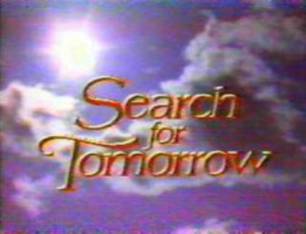


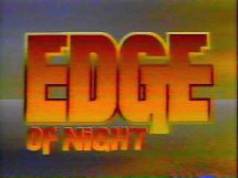
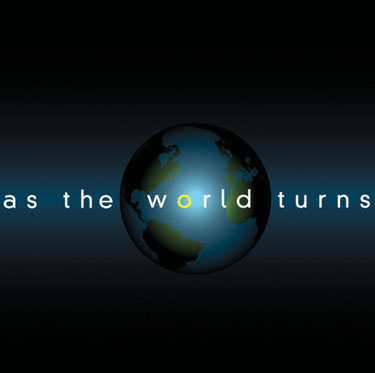
The 50's offers to the televiewers Love of Life and Search for Tomorrow, created by Roy Winsor, which precisely began on September 03 1951 on CBS (the show will be also aired on NBC). It get finished in 1986 ! It is the only daytime soap (soap aired between 11 a.m. and 5 p.m.) of the moment on the antenna. In 1955, they are already 17. Each one lasts only fifteen minutes in general and is aired in live. On June 30 1952, a second soap makes its appearance. It is Guiding Light, created for the radio in 1935 by the big priestess of soap-radio, Irna Philipps. Then one should wait until 1954 to see The Secret Storm, still a Roy Winsor production, and 1956 for The Edge of Night and As the World Turns, both on CBS.
| The Sixties |
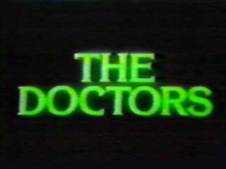



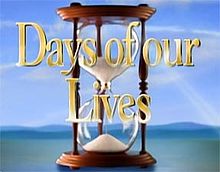


It is during the season 1963-1964 that the majority of the daytime soaps pass from fifteen to thirty minutes and that eight new soaps are born (of which The Doctors and Another World). On April 01 1963, Frank and Doris Hurley launch on ABC, General Hospital. Everything is there : the nurse who falls in love with the beautiful doctor, the patient, on her bed of pains, who finds her husband who had left her, the old surgeon, victim of a disease which condemns him not to operate anymore, but who will miraculously find the use of his hands, the hateful ambulance man who sells drug in the grounds of the hospital... It always goes on ! The Sixties also see being born Days of our Lives in 1965 and One Life to Live in 1968.
On September 15 1964, ABC launches Peyton Place, a show which can be watched as the precursor of Dallas, insofar as it is aired in prime-time, on average three times per week. It will last 514 episodes, until June 02 1969. Peyton Place, drawn from the novel of Grace Metalious, put in scene the same type of characters that the other soaps, but it is interesting to announce that many famous actors, or who were to become it, made appearances, sometimes very noticed : Mia Farrow, Ryan O' Neal, Leslie Nielsen or Gena Rowlands. Whereas Mia Farrow left the show at the end of two seasons, Ryan O' Neal, for his part, played Rodney Harrington until the end. With that success, the show was brought to life again from 1972 to 1974 as a daytime soap.
But the soap the more bizarre of the decade starts on June 27 1966 on ABC. It is Dark Shadows, born from the imagination or rather from a dream of Dan Curtis, who proposed his idea to ABC. The network, always looking for innovations, became enthousiastic with the project, at least very disconcerting : to mix with a banal soap stories of phantoms and ghosts. Not too much, all the same, not to frighten the public of the afternoon which, in any case did not seem to taste this kind of joke. The romantic-supernatural adventures of Elizabeth Collins, Roger Collins or Victoria Winter attracted only a few televiewers. Dan Curtis then decided to try the whole for the whole and introduced a new character. Thus one night, in the crypt of Collinwood, the manor of the Collins, a tomb half-opens and lets come out Barnabas Collins the vampire ! Initially envisaged to appear only in about fifteen episodes, Barnabas Collins finally left the show only in 1971, at its death - that of the show, not Barnabas' one, because, as he enjoyed to repeat it : "You cannot kill me, I already died !" The interpreter of Barnabas, Jonathan Frid, acquired in a few weeks an unexpected fame and the audience made a spectacular jump, in particular near the teenagers (the first time in the history of soaps). To complicate the story, the writers decided to add many flashbacks, which enabled them to make play to the same actors, the roles of the ancestors of their character, all more or less wizards or vampires. The story even told how the malefic Angelique transformed Barnabas into a vampire to punish him not to have accepted her love. Because, during this time, indeed, the strings of the soap continue to be abundantly used. Thus, a powerful wizard, because of his love for the sweet Maggie Evans, will fail in his attempt at raising an army for Satan, and a monster came from another dimension will destroy the gate connecting our world to his in order to live the perfect love with a mortal ! In short, a real delirium and the soap which escapes the more to the others ! Dark Shadows is undoubtedly a mystery. And as said, at least once per week, each character : "There must however have an explanation !"...
| The Seventies |
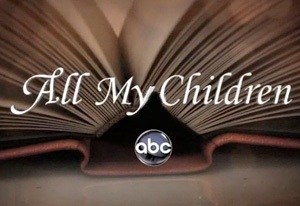


Whereas the beginning of the Seventies seems to ring the knell of the daitime soaps, in particular with the disappearance of one of the oldest, The Secret Storm, the networks give a real blow of regenerating brush. Some soaps change of name (Lovers and Friends becomes For Richer, for Poorer) and others generate spin-offs (Somerset is drawn from Another World). Three famous soaps are also created : All my Children in 1970, Ryan's Hope in 1975 and The Young and the Restless (created on March 26 1973 by William J Bell and Lee Phillip Bell).
And especially, in 1976, start the first great nighttime soap : Mary Hartman, Mary Hartman. Under a scenario which perfectly agreed with the formula of the daytime soap, the show was a virulent criticism of all the others soaps. The situations were more agreed as usual and the characters totally ridiculous. Mary Hartman, Mary Hartman was first of all aired in syndication and, thereafter, was aired on CBS in the CBS Late Movie, after 11 p.m. . The great revolution arrives with Dallas, launched in 1978, and which will be the success that everybody knows.
From these Seventies, one can retain several transformations inherent in the nature and the perception of soaps. First of all, the majority of them pass from a duration of 30 mn to 45 then 60 mn. Another World will even try the 90 mn. But it is especially in the composition of the public that the most significant changes are recorded. The public, up to now exclusively female, is composed from now of 21 % of men, a growing number of graduates, younger and coming from all the social groups. Groups meet in the universities, the schools dormitories or the bars, to view episodes. From now on, the active women, accustomed to follow their daytime soap when they were students, record it to watch it while coming back home. The behavior vis-a-vis soap is, as we see it, completely modified.
| The Eighties |
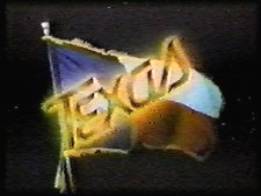
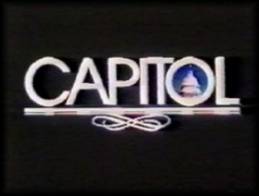


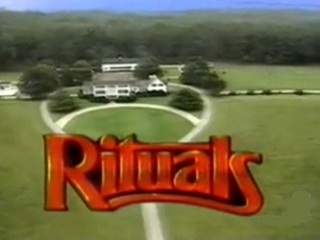

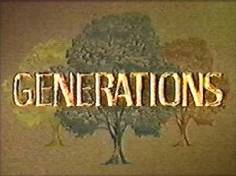
Some soaps, once again victims of the revision of the grids of programs, are cancelled, while others are launched. Texas starts on August 04 1980 on NBC, followed on March 26 1982 by Capitol on CBS. ABC launches its first soap in eight years, Loving, on June 26 1983. NBC will wait until the Olympic Games to undertake the diffusion, on July 30 1984, of Santa Barbara (cancelled on January 15 1993). Then is aired in syndication Rituals, during one year, from September 1984 to September 1985. CBS creates a spin-off of The Young and the Restless on March 23 1987, it is called The Bold and the Beautiful, whose action spreads out in the fashion world. In March 1989, NBC proposes Generations, which will end in Januray 1991.
This time, stories replace little by little the old characters, relegated on the second plan, by a little of imagination. Journalists start to write articles, not about the actors and their love passions, but about the phenomenon itself. Academics are interested more and more in the subject and even baptize their studies on soaps of "sudsology" !
The good health of the daytime soap does not prevent the nighttime soap from going well. Thus, to answer to CBS and the growing success of Dallas and Knots Landing, its spin-off which was created in 1979, the network ABC launches, in 1981, Dynasty. The soap definitively acquired its letters of nobility. The nighttime confers it a statute enviable, which will however not last a very long time and will be primarily focused over the Eighties. Flamingo Road (1981-1982), Falcon Crest (1981-1990), Dynasty (1981-1989), Dallas (1978-1991) and Knots Landing (1979-1993) will have been used only to renew a genre, however far from being diying.
|
|
The Nineties mark the birth of the soap for teenagers, which very quickly deviates towards a more adult soap, followed by all the age and social categories, shameless nor embarrassment. It is initially Beverly Hills 90210 in 1990, then Melrose Place in 1992, two productions signed Aaron Spelling who will launch the one after the other tens of "series-soaps" whose duration will never exceed the season : Model's Inc, Malibu Shores, Savannah and others Pacific Palisades. Since that, other shows whose certain parts of the action extends from episodes to episodes are born and have been qualified of soaps (but perhaps sometimes a little excessively) : Twin Peaks, E.R., Party of Five, Dawson's Creek... But let us return to the daytime soaps: on November 13 1995, ABC replaces Loving by a spin-off The City. But the program stops two years later. To succeed it, ABC creates on June 01 1997 Port Charles, which follows the adventures of three recurring characters of General Hospital. It is finally on NBC that can be found the revival of the daytime soap, with on January 06 1997 the birth of Sunset Beach (an Aaron Spelling production), and on July 05 1999 the one of Passions which replaces Another World, in end of breath for a few years. But these recent creations have big difficulties to settle : Sunset Beach is cancelled on December 31 1999, Port Charles on October 03 2003, and Passions (in the meantime gone from NBC to DIRECTV, a cabled channel) on August 11 2008. The financial crisis and the general decline of the television ratings of the end of the 2000's passing there, CBS get separated from Guiding Light on September 18 2009, and canceled As the World Turns on September 17 2010. ABC followed in 2011 while announcing the end of All my Children for September 2011 and of One Life to Live for January 2012. The platform Hulu produced approximately 40 episodes of these two soaps in April 2013 before both programs were permanently canceled for financial and legal reasons. Finally, after 57 years on NBC, the daily broadcast of Days of Our Lives was transferred from NBC to the platform Peacock, starting in September 2022. Finally, CBS surprisingly launched a new soap-opera in February 2025, Beyond the Gates, the first in 25 years. |